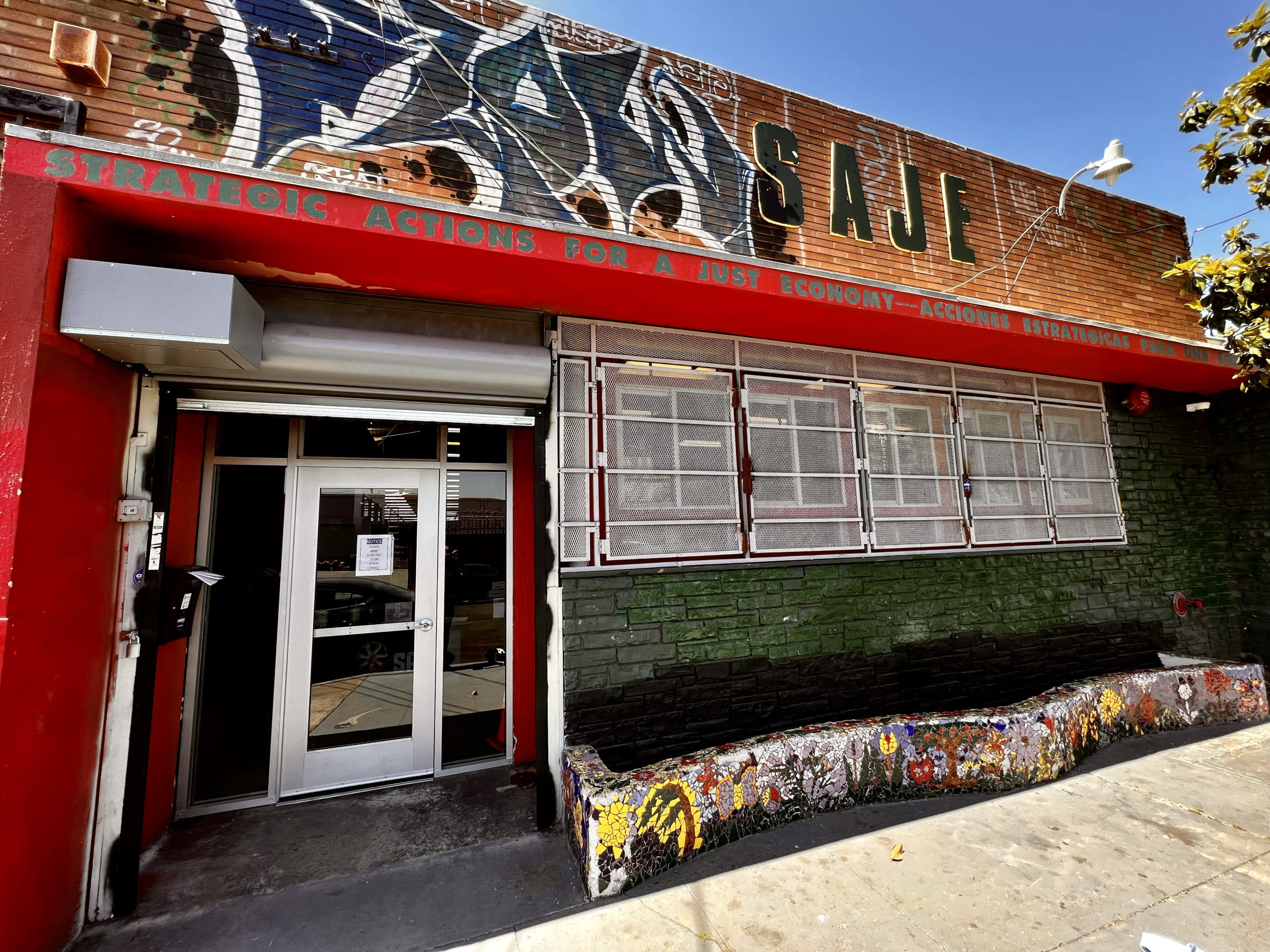March 15, 2023
By Cynthia Strathmann, Executive Director
On February 13, Strategic Actions for a Just Economy (SAJE), along with more than twenty other Los Angeles-based 501(c)3 organizations, submitted public comment to the Los Angeles City Council on proposed amendments to the city’s municipal lobbying ordinance. To understand why we oppose this amendment as it is written, and instead support the original recommendations of the City Ethics Commission, it’s helpful to understand what a 501(c)(3) nonprofit does. Not all nonprofits are 501(c)(3)s; the designation is determined by the Internal Revenue Service. We have it because we help administer “charitable programs” for public agencies. In fact, a specific portion of our funding must come from the public—the government or a publicly funded organization—or we will “tip” into private foundation status and have to become a different type of entity. This rule exists to ensure 501(c)(3)s cannot be set up as shell organizations for private companies or as tax shelters for the wealthy.
As a 501(c)(3), we are already required to report our lobbying activities to the federal government. We can only lobby in the public interest, which means we cannot accept money from private companies or individuals in exchange for pushing their agendas with government agencies or officials. We also have a limit on the amount of public interest lobbying our staff can do, and we are required to track and report it to the Internal Revenue Service when we file our taxes. Our federal tax returns must be publicly available, and they detail our programs, the amount of money we spend on them, our funders, and the amount we spend on lobbying. Our 501(c)(3) status also puts other limitations on our work. SAJE cannot support candidates running for office: we can’t give them money, we can’t recommend them in a voter guide, and we can’t help canvass to get them elected. If we break any of these rules, we could lose our 501(c)(3) status or get hit with substantial fines or both.
So, given that there are already pretty clear lobbying rules, restrictions, and reporting requirements for 501(c)(3)s that we are able to adhere to, why are we opposed to this amendment to the municipal lobbying ordinance?
Quite simply, the extra layer of reporting it adds is expensive, time consuming, and diverts resources meant for people into administrative tasks that are redundant and do not mitigate any real risk. 501(c)(3)s already report lobbying activities to the IRS. This amendment would require us to report all that again to the city, too. A new set of reporting requirements would require us to set up an additional internal wage and hour tracking system and devote staff time to monitoring it. This will unnecessarily divert charitable dollars from our missions while changing nothing about how we lobby and for whom. It’s not reform, it’s just more paperwork.
More importantly, the expense and time associated with an additional layer of reporting may deter some 501(c)(3) organizations, especially the small organizations most likely to represent lower income residents from communities of color, from showing up to hearings, council chambers, and other legislative spaces to represent the public interest. This means less community input into government decisions. Nonprofits engaged in public service work have expertise about the challenges and conditions faced by community members. We need these organizations at the table to facilitate the engagement of these residents—who often don’t have the flexibility to show up to make public comments in the middle of the day—in city decision making. Those that are stymied by reporting processes will do less of this important work. In contrast, large and well-funded non-profits will have a much easier time adhering to the rules, as they have the staffing and resources to support more elaborate reporting requirements. And of course, the upper-middle-class professionals that have always dominated public discourse in Los Angeles will remain undeterred.
This is why the City of Los Angeles has historically exempted some 501(c)(3) organizations from the municipal lobbying ordinance. It’s also why 501(c)(3)s elsewhere have pushed back against similar amendments, and why cities like San Francisco exempt 501(c)(3) nonprofits altogether.
While we are not fans of additional paperwork, we accept the fact that we are likely to have to take on new administrative burdens, even at a cost to our programmatic work, to ensure the confidence of the public. We understand that large and well-funded non profits have brought new scrutiny to the sector. However, we believe that the need for transparency should be satisfied without unduly chilling the participation of vulnerable residents who count on community based organizations to lift up their voices, or by straining the resources of public charities already under pressure from the need generated by the pandemic.
You can read our full letter to the Los Angeles City Council here.

